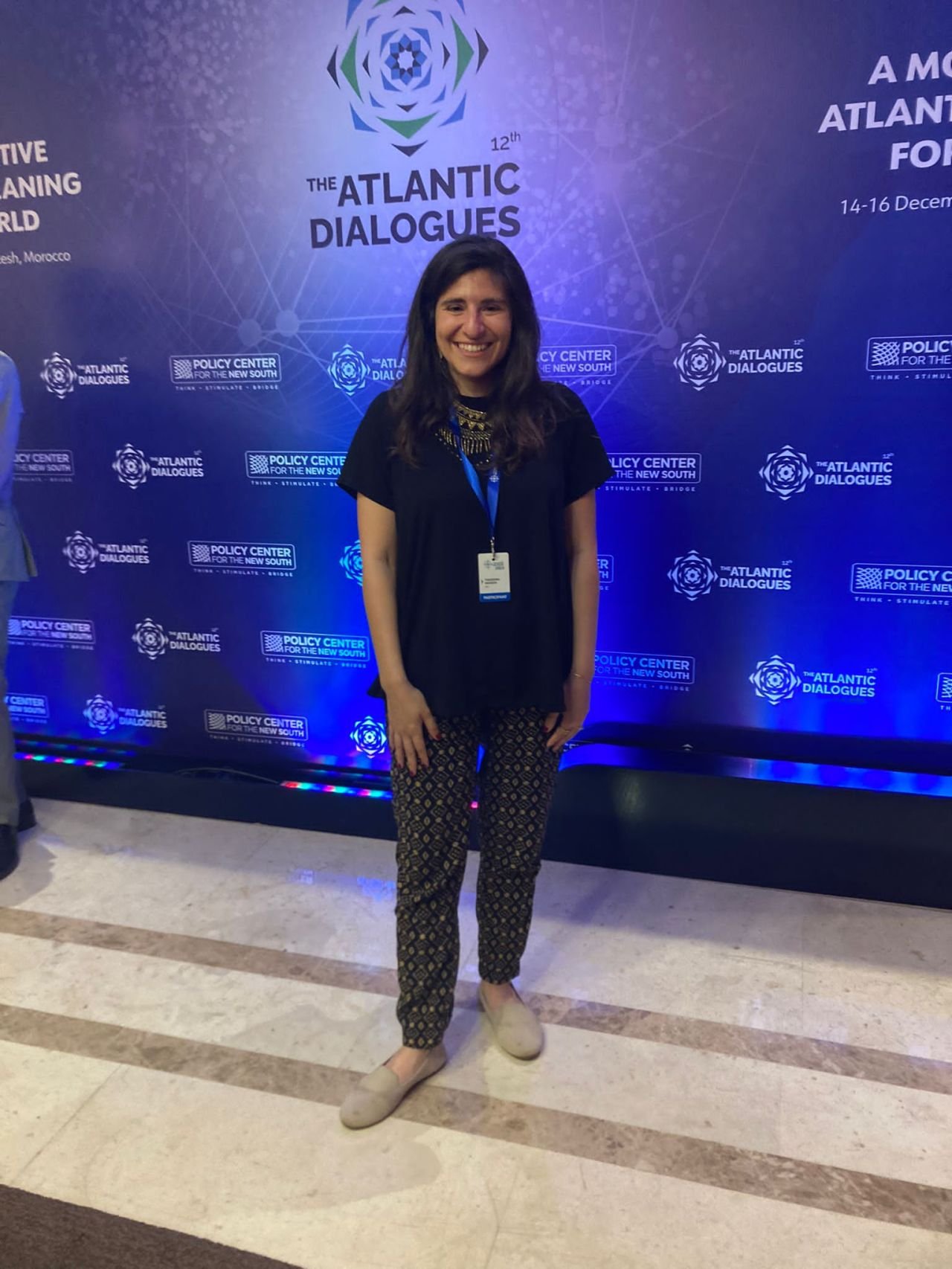Hi, I’m Theo!
In my 11 years of work, I have immersed myself in ongoing debates around online and offline harms across online speech governance, content moderation, and trust and safety issues. I undertook years of work and study in the Middle East and North Africa region, where I witnessed firsthand the role of social media in advancing both political movements for greater democracy and hateful behavior, disinformation, violence, and terrorism. And, my work in national security and technology policy has advanced my knowledge of these nuanced issues.
I witnessed a range of complicated online speech governance, content moderation, and trust and safety issues during my years spent working with non-governmental organizations in Greece, Morocco, and Turkey during the height of the Arab Spring. I lived in Morocco during Tunisia’s and Egypt’s 2011 revolution, which yielded significant proactive constitutional reform to Morocco, and then Turkey during the 2013 Gezi Park protests, when people expressed widespread discontent with the government’s policies. I observed how transformational platforms like Twitter were in advancing critical political and social conversations. I witnessed governments block Internet services to control the conversation, and challenging debates erupt around important issues like online violence against women, systemic Islamophobic bias in platform algorithms, the proliferation of disinformation and fake news, and mental health and suicide. In Morocco, I worked for nonprofits in Casablanca and Rabat at the intersection of education, youth empowerment, community development, poverty alleviation, and conflict resolution. I used my French to work with immigrant women from Francophone African countries including Mali, Niger, and Mauritania, and my Moroccan Darija to provide educational services to children and adult women living in a low-income neighborhood of Casablanca. In Turkey, I taught at Akdeniz University and researched the barriers to employment for Syrian refugee youth in southeast Turkey and Kurdish Iraq.
I later spent six years at Booz Allen Hamilton, examining public sentiment, social movements, and disinformation using social media for the U.S. Federal Government. I analyzed qualitative and quantitative data across topics including countering violent extremism, counter-terrorism, and cyber security with tools including sentiment analysis, Tableau Software, natural language processing, and econometrics. My work covered issues including how ISIS employed sophisticated social media strategies to recruit tens of thousands of members, how Al Shabaab in Somalia used radio to disseminate its own message, how Turks used digital media to organize around the 2017 constitutional referendum, and how Eastern Europeans responded on social media to NATO’s military expansion in the region. Over these years, I observed growing sophistication in social media across all kinds of users, including violent non-state organizations, non-violent civic protestors, and journalists.
And in the last two years at Twitter, I worked to foster healthy global conversations and empower digital rights for our global users. I managed all aspects of our Trust and Safety Council, Twitter’s largest public consultative body. I managed a trusted partners program to provide timely support to journalists and human rights defenders globally, to combat issues including platform manipulation, impersonation, fraud, human trafficking, terrorism, and child sexual abuse material. I led the Public Policy team’s knowledge management efforts on issues including antitrust, disinformation and hate speech, and open internet. I created and circulated a monthly research newsletter to the Public Policy team, detailing cutting-edge research on various human rights and privacy-related issues. In partnership with other stakeholders, I helped develop global policies and coordinate global consultations on issues like our world leaders policy, gender-based violence, and human rights impact assessments. I helped develop Twitter’s Content Governance Initiative, a framework comprising guiding principles and standardized guidelines on policy development, enforcement, and appeals. I drove a knowledge management effort across our global civic integrity team. And, I supported the Twitter Moderation Research Consortium, which shared takedown data on state-backed information operations with researchers.
After leaving Twitter in February, I have been consulting with a range of civil society organizations, including the Carnegie Endowment for International Peace's Partnership for Countering Influence Operations on government efforts to combat disinformation in Ukraine, National Democratic Institute on online gender-based violence and women’s political participation, the Committee to Protect Journalists on a journalist safety tool, the National Endowment for Democracy on how recent changes at social media and messaging app companies will impact on democracy and the many elections coming over the next 16 months, the Aspen Institute on the politics of social media, and Partnership on AI on AI governance issues. I also work as the Executive Director of Cambridge Local First, a community nonprofit that explores issues of monopolistic competition and antitrust across digital spaces.
I’ve observed that degradation of trust in media and public institutions, an increase in disinformation, and the proliferation of hateful behaviors and violence, has challenged and changed this work over time. Most recently and acutely, Elon Musk’s decision to acquire Twitter has advanced a huge debate around online speech governance, content moderation at technology companies. Through my work in trust and safety, I’ve witnessed firsthand that online harms hurt people, and they facilitate offline harms. As examples of the thousands we encountered, when someone posted content depicting people drinking during Ramadan in Turkey, these people lost their jobs the next day. People are imprisoned and tortured based on content that gets posted. People get harassed and threatened. A documented rise in violent online rhetoric against Palestinians in the West Bank has been linked to offline harms, and a series of cascading real-world effects. And, the proliferation of generative artificial intelligence in the form of chatbots in the last year has vastly expanded the potential for online and offline harms.
I hold a BA in Philosophy and Government from Harvard College, and a Master of Public Policy from the Harvard Kennedy School. I have studied Modern Greek, Spanish, Modern Standard Arabic, French, Moroccan Darija, and Modern Turkish and look forward to communicating with Cambridge residents in these languages. I am the proud partner of Wael, sister of Georgia and Dena, and sister-in-law of Ayoub, Camilla, Wiam, Claire, Teresa, and Catherine.
